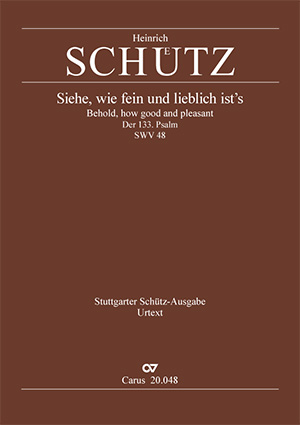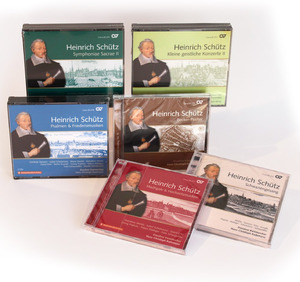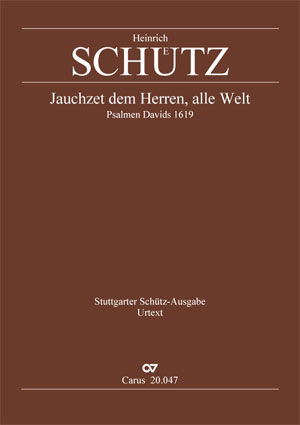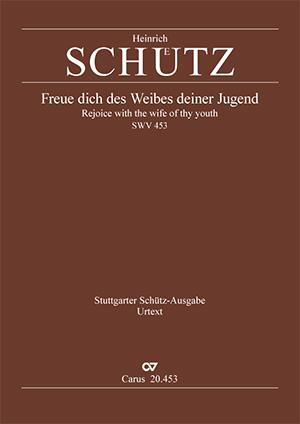Heinrich Schütz’s setting of Psalm 133 was composed for the wedding of his “amiable and much-loved” brother Georg Schütz which took place on 9 August 1619 in St Nicholas’s Church in Leipzig. With its colorful instrumental accompaniment, this intimate composition may be regarded as one of the most charming works of its time. At the same time it is probably the first work by Schütz which gives us a sense of the concertante style of the Symphoniae sacrae I which were to follow.
Purchase
Additional product information
-
Composer
Heinrich Schütz
| 1585-1672Heinrich Schütz is regarded as the first German musician of European stature. As a choirboy from 1599 at the court of Landgrave Moritz of Hessen-Kassel, he received a thorough education. In 1608 he began a law degree in Marburg, but broke this off in 1609 in order, with the support of the Landgrave, to study composition with Giovanni Gabrieli, organist at St Mark’s in Venice. In 1613 Schütz returned to Kassel, but two years later was enticed away by Elector Johann Georg I of Saxony to the Dresden court as “Organist und Director der Musica”, where he held the position of Hofkapellmeister (court Kapellmeister) from 1617 until his death. Schütz’s great cycles of vocal works marked the high point of his reputation in Germany and northern Europe. But these represent only part of Schütz’s output; individual works are represented in printed collections with works by other composers, others only survive in manuscript, and much has been lost. The Stuttgart Schütz Edition makes available Schütz’s complete oeuvre, and all works are also published in practical Urtext editions. Personal details
-
Editor
Uwe Wolf
| 1961Uwe Wolf studied musicology, history, and historical ancillary science at Tübingen and Göttingen. After receiving his doctorate in 1991 he was a research assistant at the Johann-Sebastian-Bach-Institut in Göttingen. From 2004 he worked at the Bach-Archiv Leipzig. There he directed a both research departments, was substantially responsible for the redisigning of the Bach Museum, and he developed the digital Online-Projekt Bach. Since October 2011 he has been the Chief Editor at Carus-Verlag, Stuttgart. He has taught at various universities and also belongs to the editorial boards of several complete editions. Personal details
-
Continuo realization
Daniel Ivo de Oliveira
| 1979
Frequent questions about this work
 There are no questions and answers available so far or you were unable to find an answer to your specific question about this work? Then click here and send your specific questions to our Customer Services!
There are no questions and answers available so far or you were unable to find an answer to your specific question about this work? Then click here and send your specific questions to our Customer Services!









